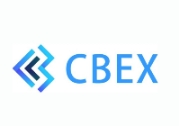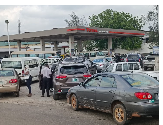
The mischief in Fidelity Bank bankruptcy rumour
By Ikechukwu Amaechi
CITIZENS COMPASS– Fidelity Bank Plc has dismissed as unfounded the story making the rounds that it is on the verge of bankruptcy following a Supreme Court judgment linked to a legacy $3 million credit facility granted by the defunct FSB International Bank in 2002.
The bank made the clarification on Monday, assuring the general public, depositors and stakeholders that it remains financially strong despite court judgment.
In a statement by its Divisional Head, Brand & Communications, Meksley Nwagboh, Fidelity Bank called for calm, stating that it was currently seeking judicial clarification on the accurate computation of the judgment sum.
“By way of a background, we confirm that the issues leading up to the judgment arose from a legacy transaction between the defunct FSB International Bank and Sagecom Concepts Limited,” the bank said.
According to the statement, FSB, a legacy bank taken over by Fidelity Bank, granted a credit facility to G. Cappa Plc in 2002 for the sum of $3 million. The facility was, in turn, secured with a mortgage on a property located in Ikoyi, Lagos.
However, when G. Cappa defaulted, the construction company quickly commenced legal proceedings against FSB at the Federal High Court, Lagos in a bid to prevent FSB from selling the mortgaged property to repay the loan.
Fidelity Bank’s press statement noted that the initial lawsuit was to restrain FSB from selling the property of the alleged loan defaulter.
The Federal High Court, in its judgment, ruled that the bank, as legal mortgagor, rightfully sold the leased interest in the property to Sagecom in 2011. The Court, however, declined to order vacant possession of the property and directed the issue to the Lagos State High Court.
In the meantime, G. Cappa remained in possession of the property and kept collecting rents.
Sagecom’s claim against the bank was essentially for liquidated damages. In 2018, the Lagos High Court awarded judgment in favour of Sagecom against G. Cappa even when it refused to order vacant possession of the property, a judgment which was challenged at the Supreme Court by Fidelity Bank for final adjudication.
But just like the High Court judgment, the Supreme Court ruled in favour of Sagecom.
Fidelity Bank said it was convinced that by remaining in possession of the property and continuing to collect rents, G. Cappa created the losses suffered by Sagecom.
However, the bank noted that after exhausting the appeal process, it is open to settling the obligation.
In fact, enquiries by TheNiche indicate that both Fidelity Bank and Sagecom are already in talks over how the judgment debt could be paid over a mutually agreed period.
It was this court ruling that detractors of the bank latched on in their demarketing voyage, which is what the bankruptcy story is all about.
And in debunking the bankruptcy insinuation, the bank assured depositors and investors of its safety as a going business concern, noting that it does not have solvency or liquidity problems.
The bank assured the public that, regardless of the Supreme Court judgment, Fidelity Bank was not under the threat of bankruptcy or liquidation.
But that fact is rather obvious. Fidelity Bank has consistently demonstrated strong financial performance, with significant growth in key financial metrics like profit before tax (PBT), gross earnings, and net interest income. The bank is also well-capitalized, maintaining a strong capital adequacy ratio (CAR) well above the minimum regulatory requirements, which is an indication of a robust financial foundation.
Not only that, it is also expanding its presence both within Nigeria and internationally, with a focus on digital banking and customer-centric services and the bank has received multiple awards, including for its performance in corporate banking, SMEs, and digital banking, highlighting its strength and leadership in the financial sector.
It is therefore not surprising that it has garnered very positive investor sentiment and consequential strong support, with oversubscription in equity capital raises and a high growth rate in share prices.
Not only that, the Central Bank of Nigeria (CBN) has weighed in on the matter, dismissing the bankruptcy story as misleading.
In a statement on Monday night, the apex bank and regulator said its attention had been drawn to some publications and social media reports containing “misleading information regarding the operations of a regulated financial institution.”
The statement by Mrs. Hakama Sidi Ali, Acting Director, Corporate Communications, affirmed that the CBN “continues to monitor all financial institutions under its regulatory purview and maintains robust frameworks for early warning signals and risk-based supervision. These mechanisms ensure that any emerging issues are promptly addressed to protect the integrity of the financial system.”
The CBN urged the public to “disregard sensational or unverified claims and rely solely on official channels for information about the financial system.”
The statement titled, “CBN reassures public on banking sector stability,” reads:
“The attention of the Central Bank of Nigeria (CBN) has been drawn to certain publications and social media reports containing misleading information regarding the operations of a regulated financial institution.
“The CBN wishes to categorically reassure the public, depositors, and stakeholders that the Nigerian banking sector remains resilient, safe, and sound. Like all other regulated institutions, the institution referenced in these reports is held to stringent regulatory requirements and there is no cause for concern regarding the safety of depositors’ funds.
“The Bank affirms that it continues to monitor all financial institutions under its regulatory purview and maintains robust frameworks for early warning signals and risk-based supervision. These mechanisms ensure that any emerging issues are promptly addressed to protect the integrity of the financial system.
“We urge the public to disregard sensational or unverified claims and rely solely on official channels for information about the financial system.
“The CBN remains dedicated to fostering a secure banking environment where depositors can be fully confident in the safety of their funds. It will continue to monitor and adapt strategies to safeguard the financial interests of all Nigerians and stakeholders in our financial system.”
Some financial experts who spoke to TheNiche insist that the bankruptcy story was contrived in the warped minds of those who are unable to compete and are “unnerved by the unprecedented growth of Fidelity Bank particularly under the leadership of Nneka Onyeali-Ikpe.”
How can a bank, which is unarguably one of Nigeria’s leading Tier-1 financial institutions, a bank that has just announced a remarkable financial performance for the first quarter of 2025, recording a PBT of N105.8 billion, which represents an impressive growth of 167.8 per cent compared to N39.5 billion in Q1 2024, suddenly go bust,” asks Mr. Olamilekan Johnson, a financial expert.
“It is all an attempt by unscrupulous people to demarket the bank. This is not the first and I am afraid, it won’t be the last. But I hope that in the interest of the country’s financial sector, they stop.”
Johnson is right. In the wake of the revocation the banking licence of Heritage Bank Plc by the CBN on June 3, 2024, the same malicious campaign, an odious attempt to precipitate a run on Fidelity Bank, was mounted by unscrupulous people, who insinuated then, as they are doing now, that Fidelity Bank, Wema Bank, Polaris Bank and Unity Bank – will go the Heritage way.
That was one week after the bank signed the necessary documentation to raise about N127.1 billion from a public offer and rights issue to its existing shareholders to raise its capital base in line with the CBN’s fresh capitalisation directive.
Could it also be that this bankruptcy hoax is the panic reaction of the same naysayers who cannot relate positively to the robust fundamentals exemplified in the incredible performance of the bank as captured in its financial statements released late last month?
The bank’s unaudited financial statements, which was released on the Nigerian Exchange (NGX) on April 30, 2025, showed a substantial increase in gross earnings, which rose to N315.4 billion, marking a year-on-year growth of 64.2 per cent from N192.1 billion in the same period last year.
Growth in interest income was primarily led by 38.6 per cent yoy (7.4 per cent ytd) expansion in earning assets base, while the increase in non-interest revenue came from FX-related income, trade and commission on banking services, etc., supported by increased customer transactions.
Commenting on the bank’s performance, Dr. Nneka Onyeali-Ikpe, the Managing Director/Chief Executive Officer, stated: “We started the year with triple-digit growth in profit and sustained the momentum in our earning assets growth. This performance shows the resilience of our business model and reinforces our confidence in delivering a better result in the 2025 financial year.”
Other areas of the unaudited financial statements equally showed a marked improvement with total deposits growing by 11.1 per cent ytd to N6.6 trillion from N5.9 trillion in December 2024, driven by 10.6 per cent ytd growth in low-cost deposits to N6.1 trillion, which represents 92.2 per cent of total customer deposits.
Local currency deposits increased by 2.0 per cent ytd while foreign currency deposits increased by 21.4 per cent from $1.9 billion in December 2024 to $2.3 billion.
“Beginning the year with such positive momentum reinforces our commitment to supporting the growth of individuals and businesses, while enhancing our financial sustainability. As we go into the rest of the year, we remain focused on building a resilient banking franchise with a diversified earnings base,” Onyeali-Ikpe added.
And that is exactly what Fidelity Bank is doing. Those who are purveying the bankruptcy story about Fidelity Bank Plc., a full-fledged commercial deposit money bank, serving over 9.1 million customers through digital banking channels, its 255 business offices in Nigeria and United Kingdom subsidiary, FidBank UK Limited, and ranked among the best banks in the country are only engaged in wishful thinking with no evidence or even logic to hang their delusional assumption.
As published on thenicheng.com







